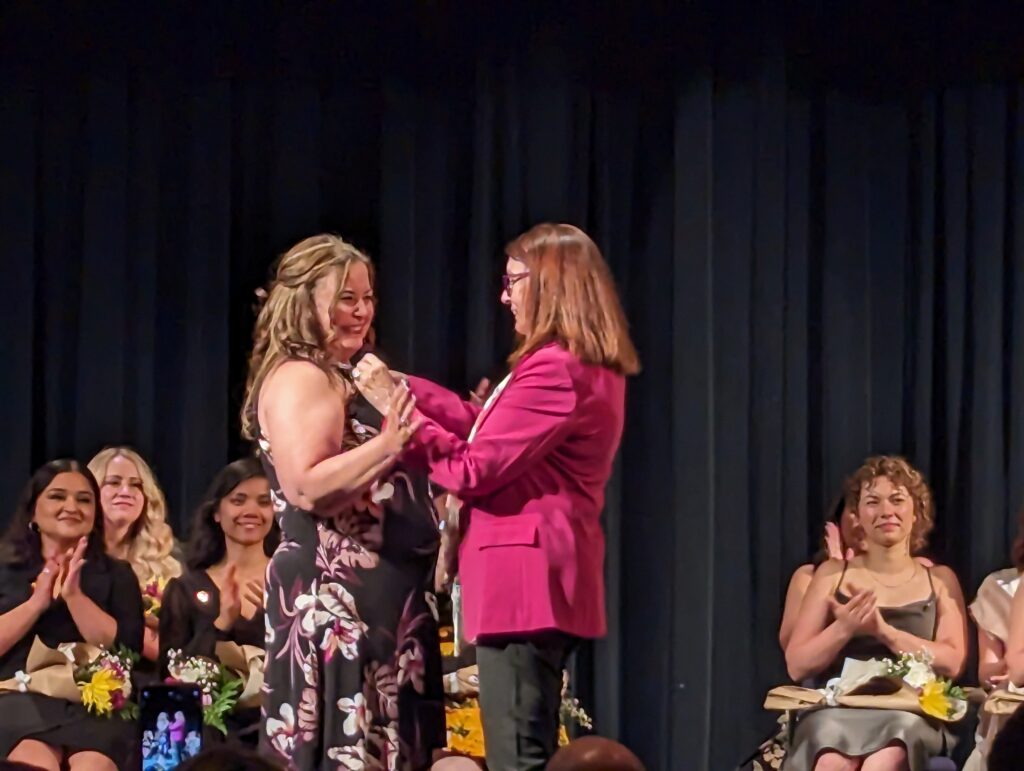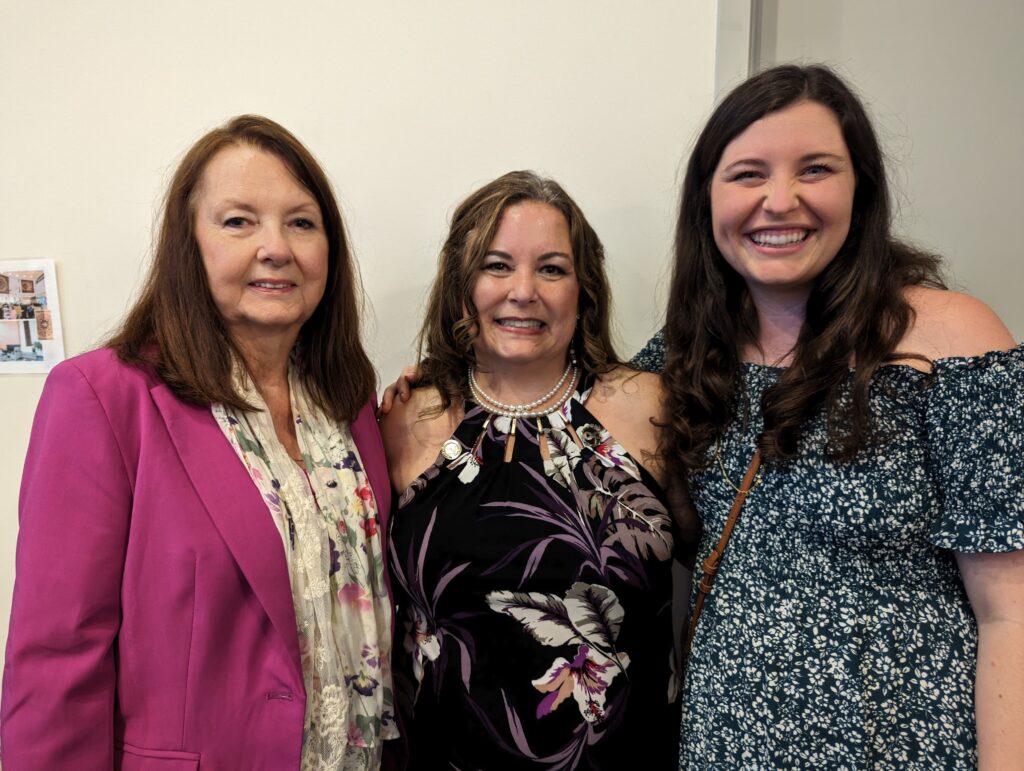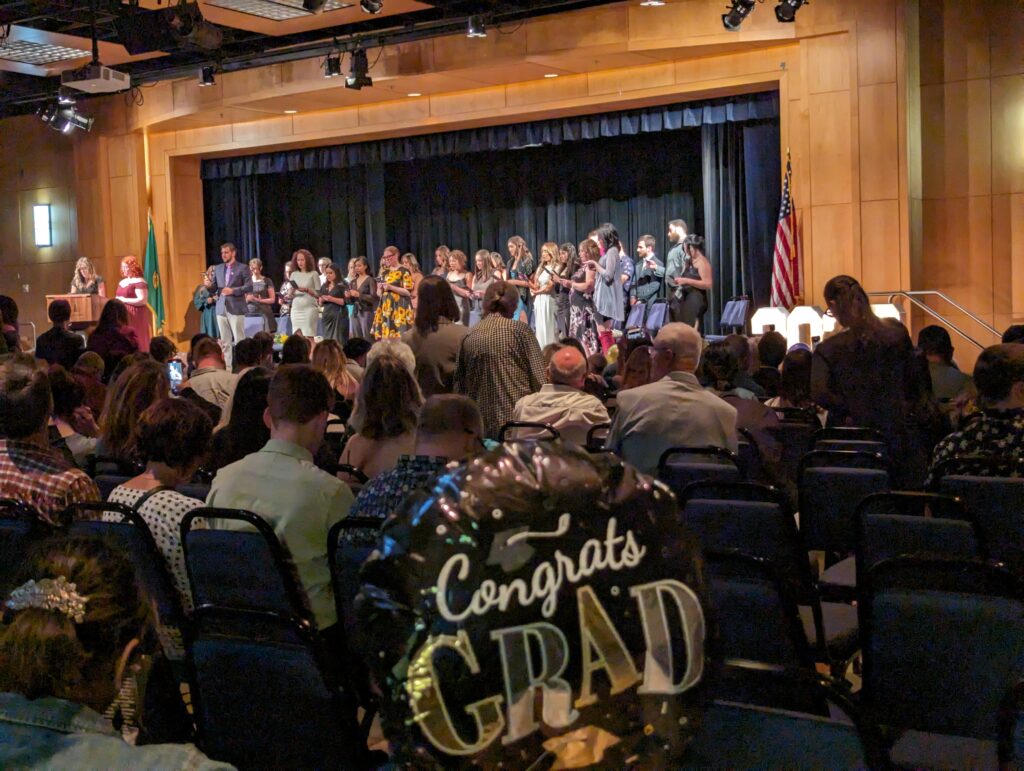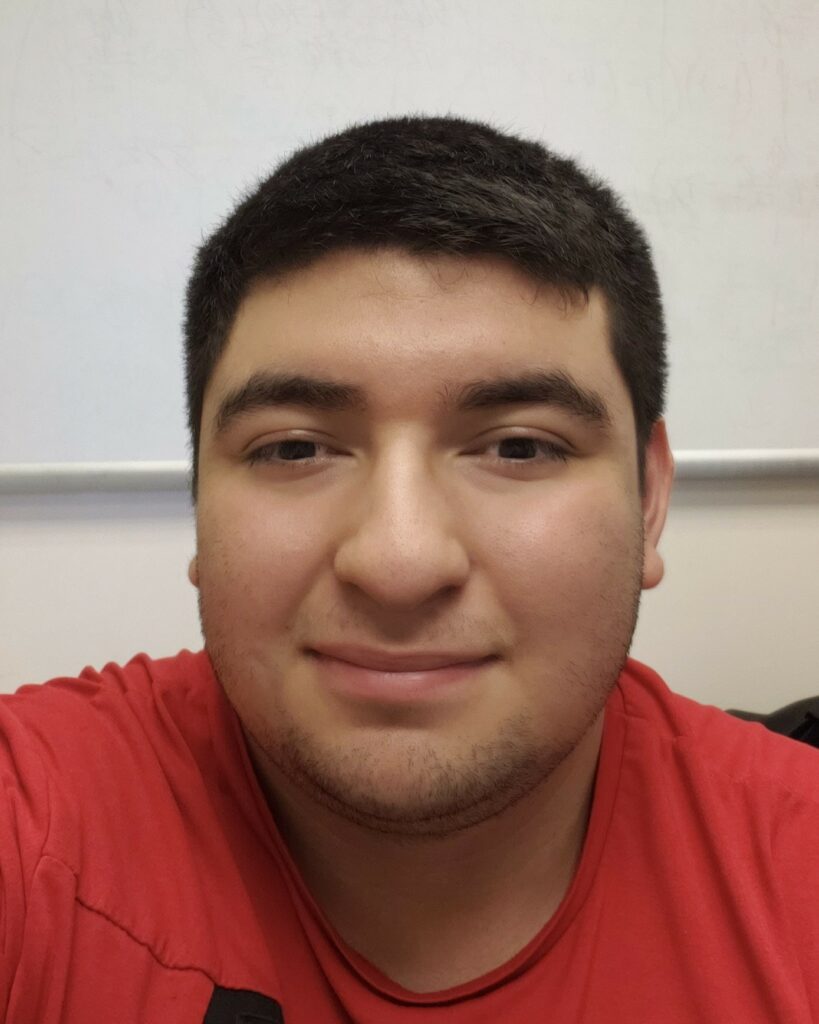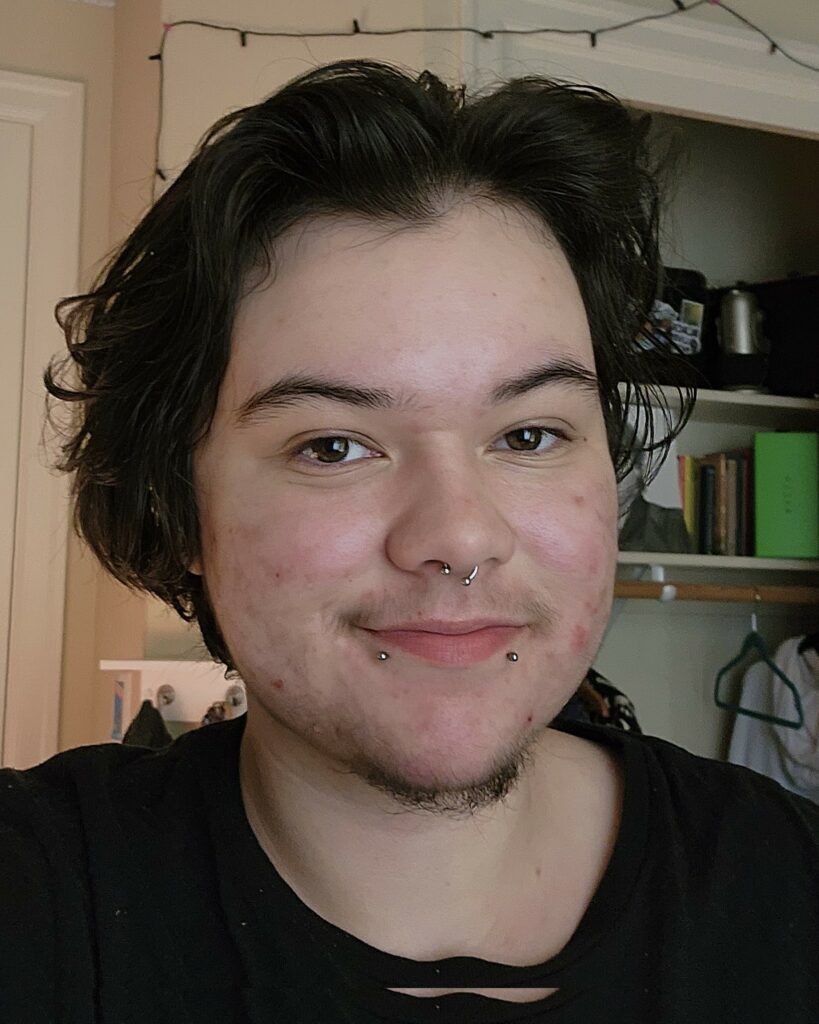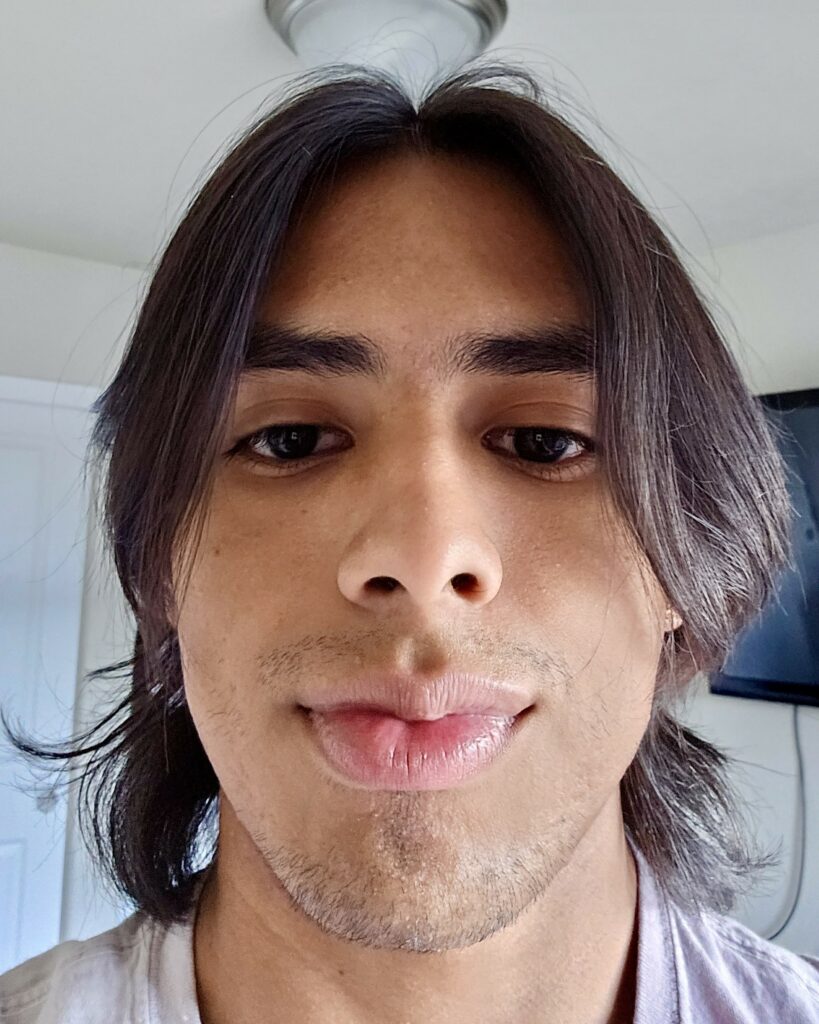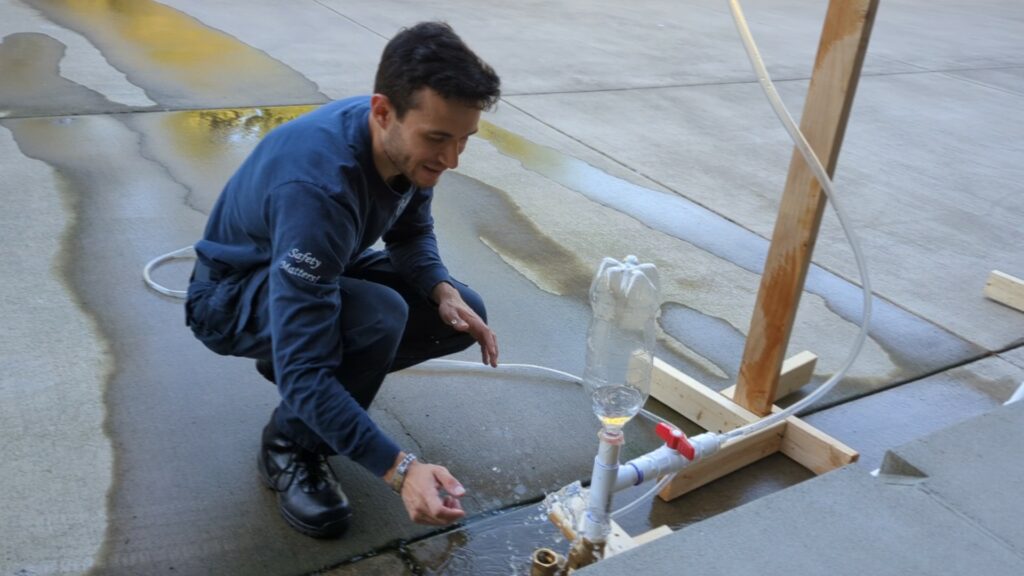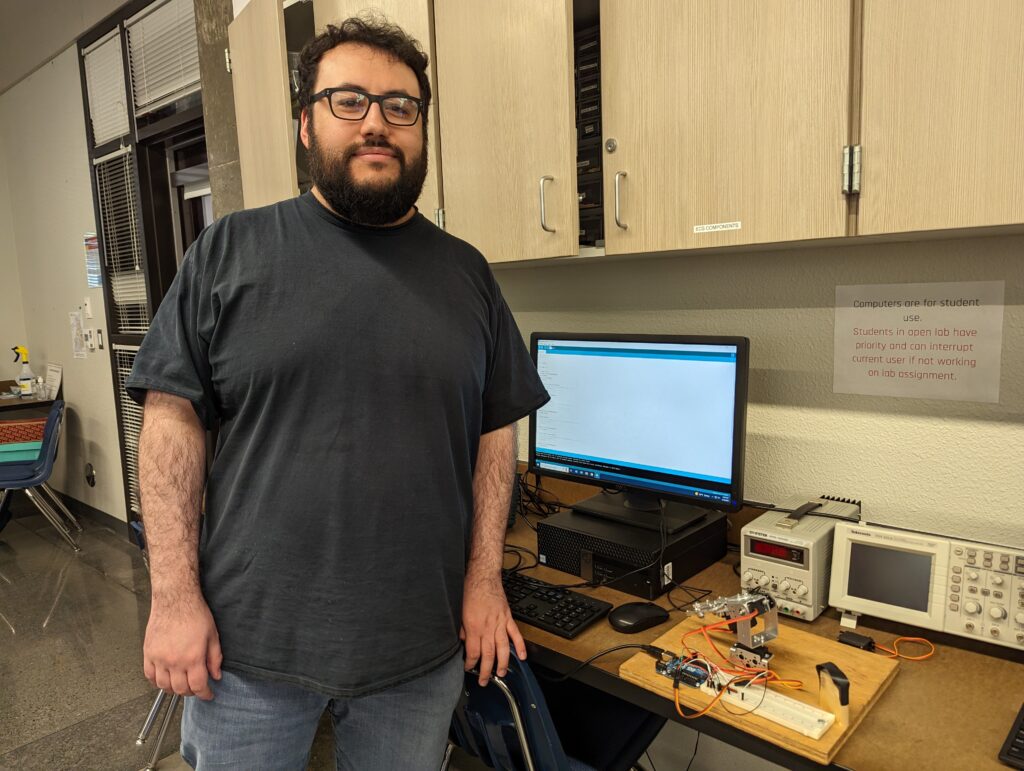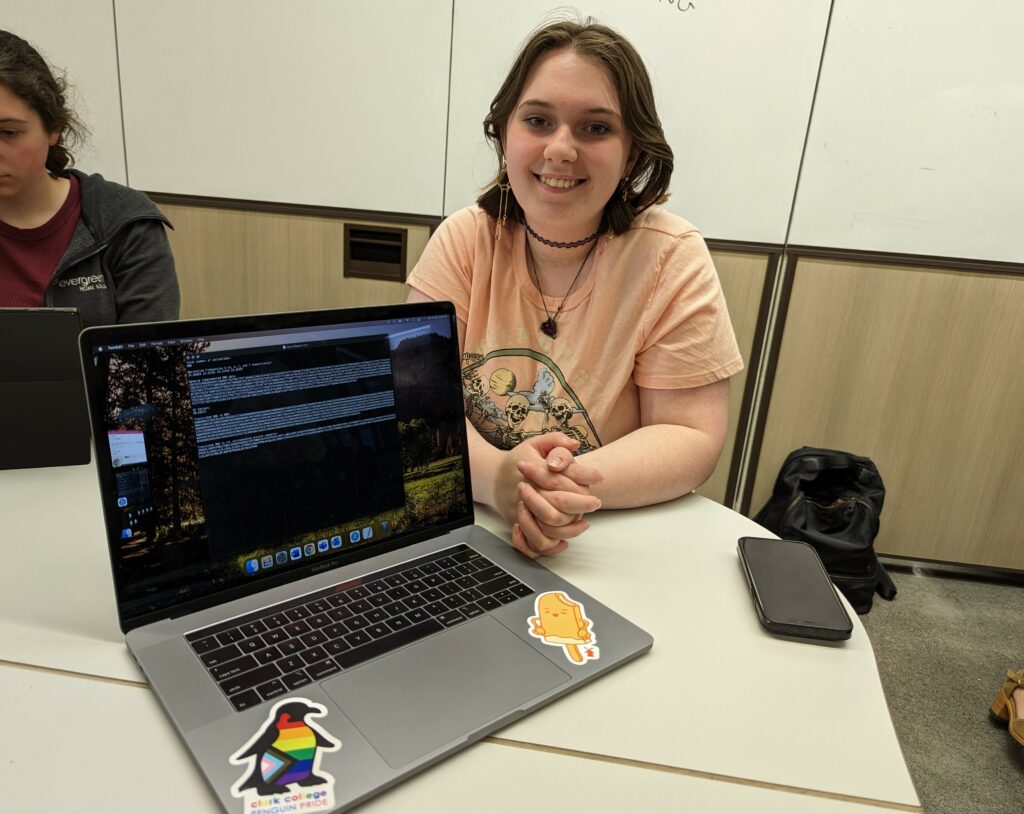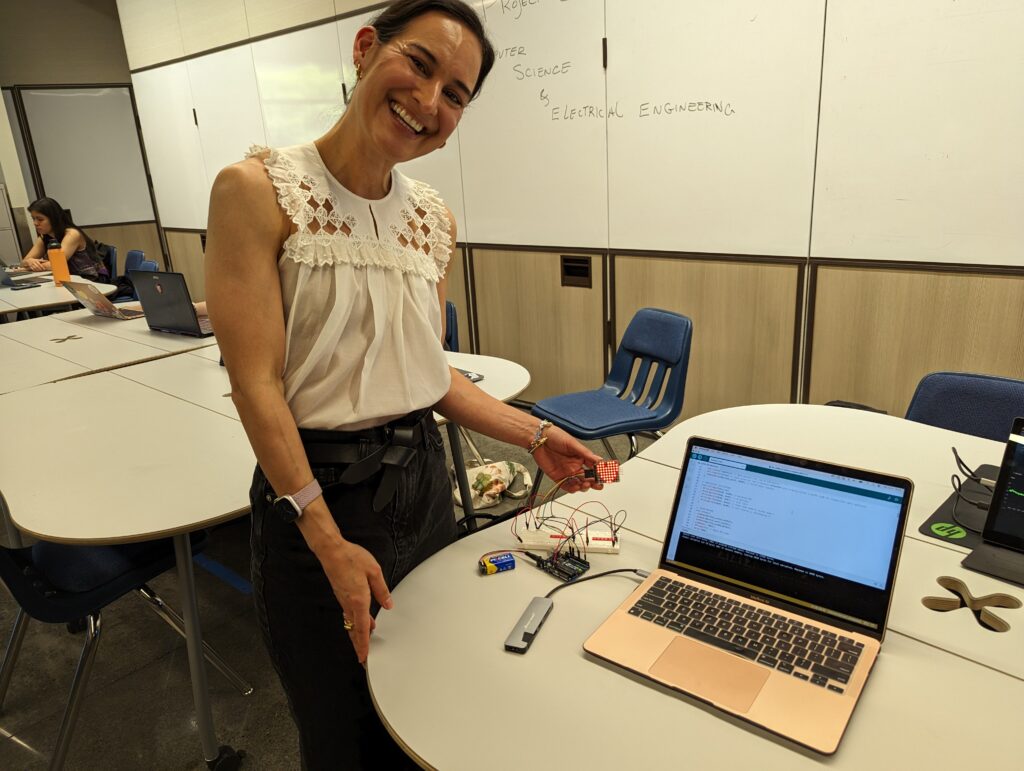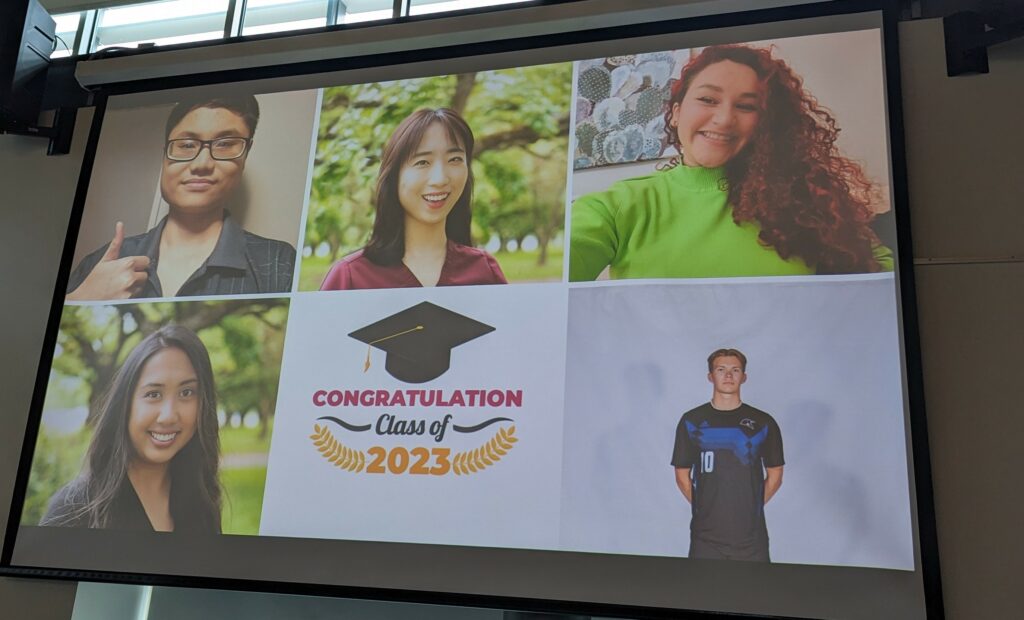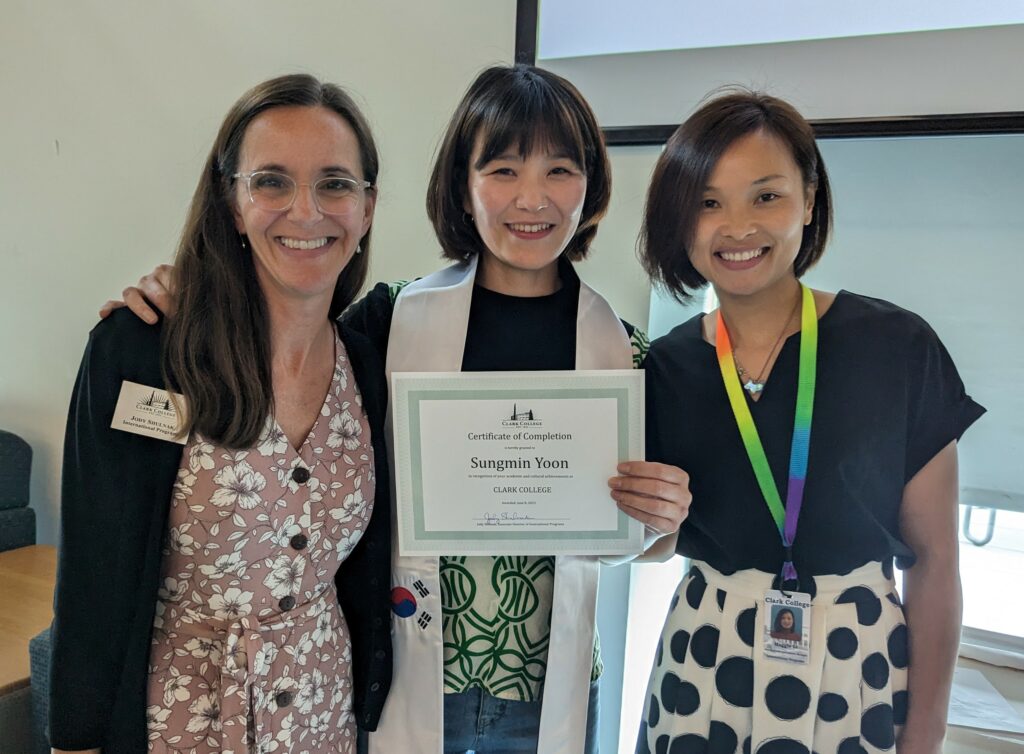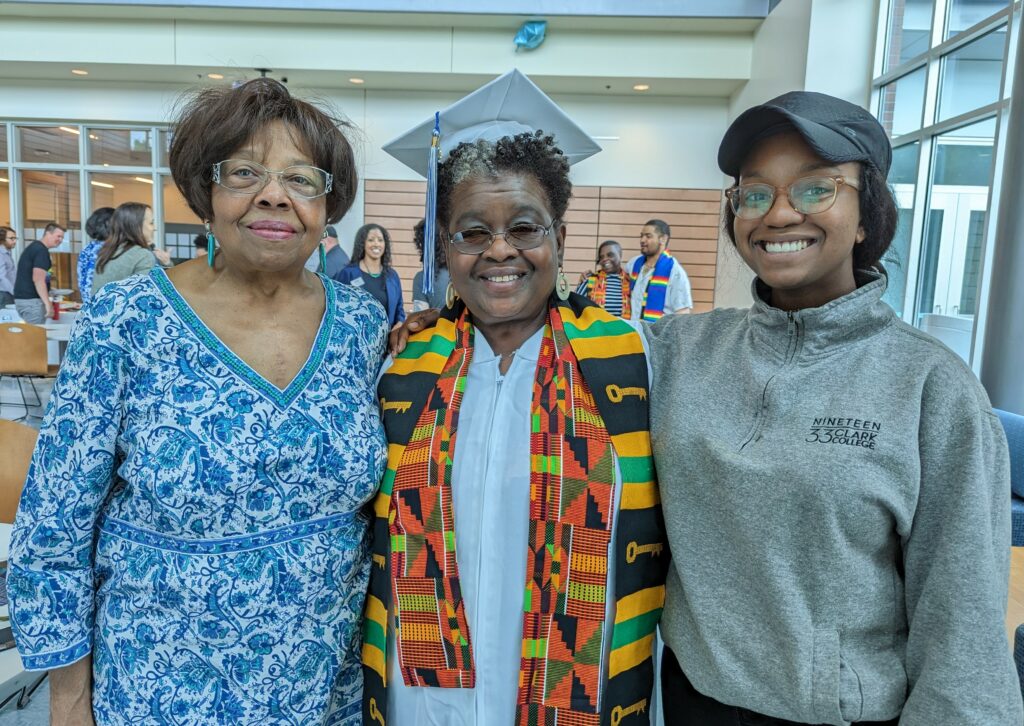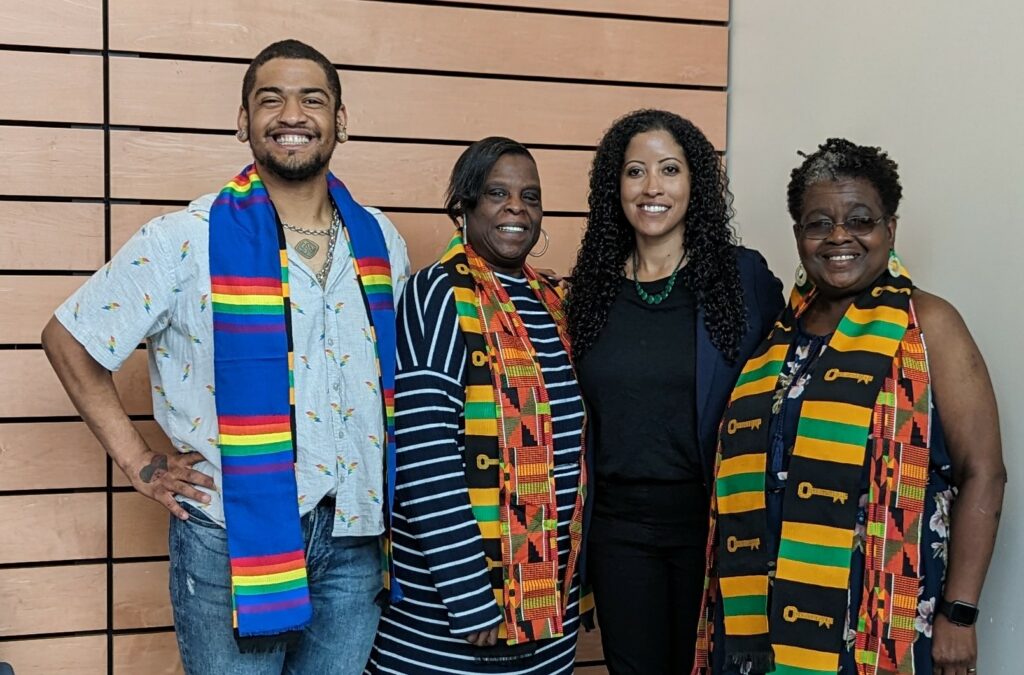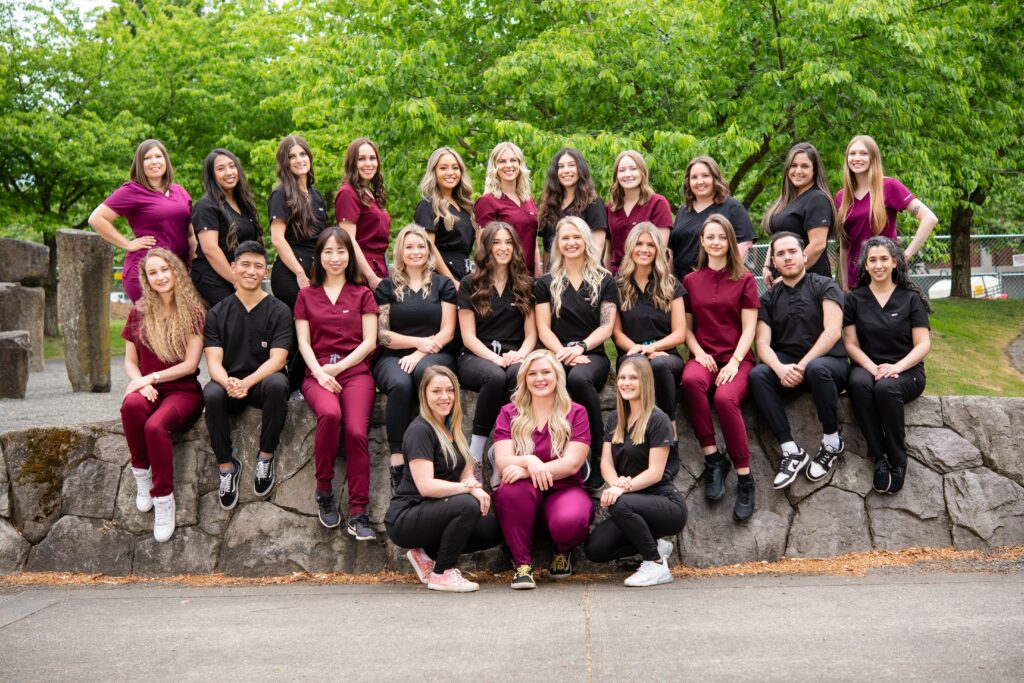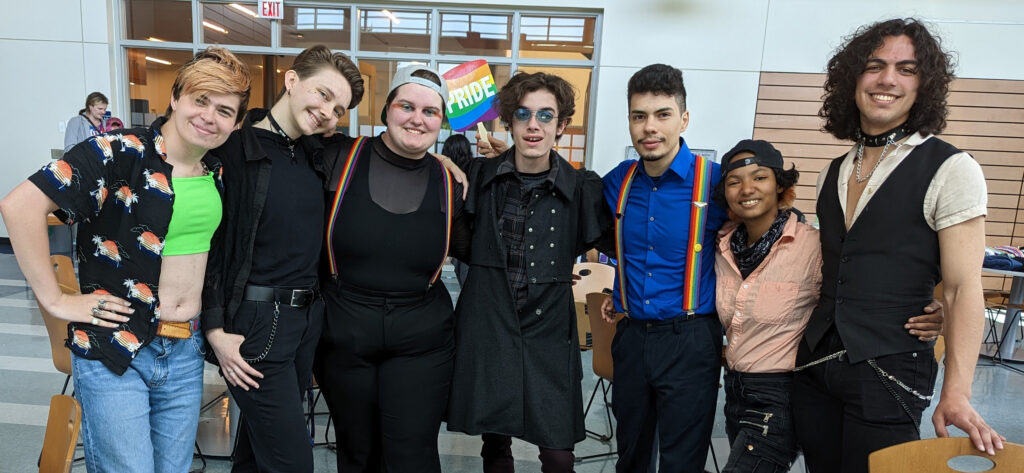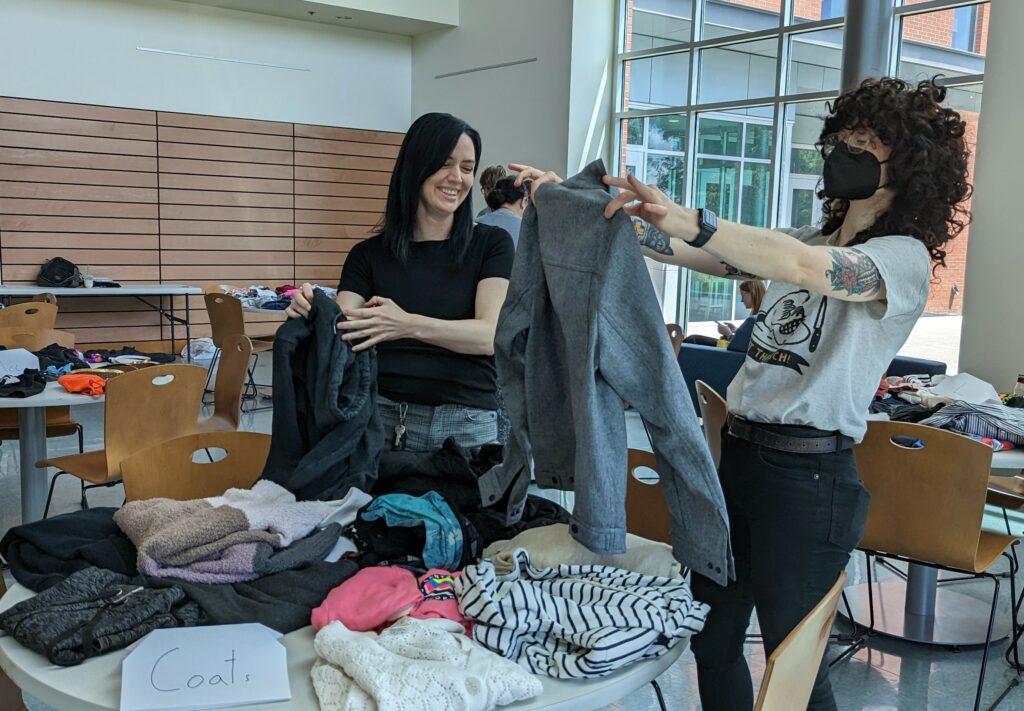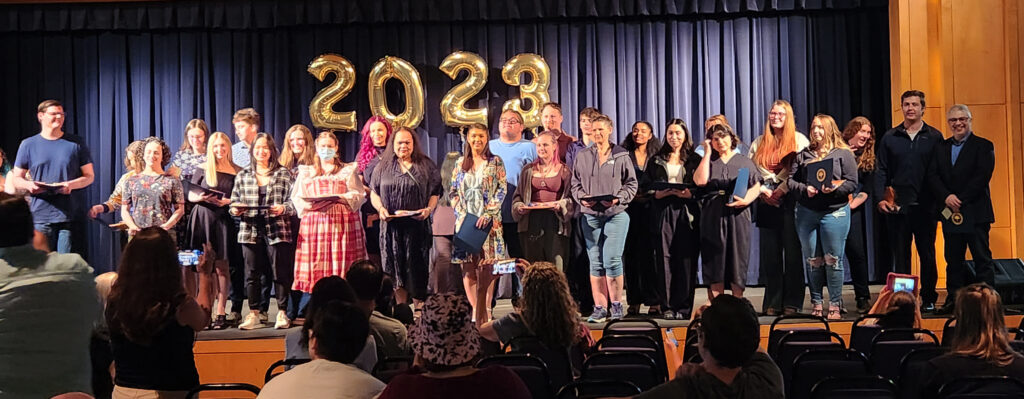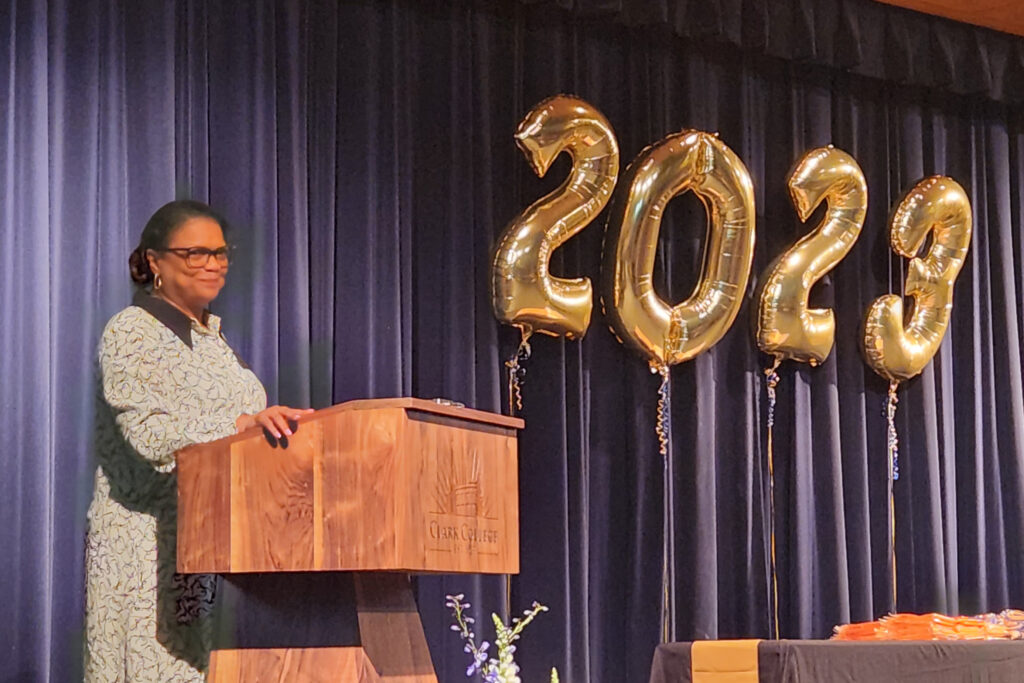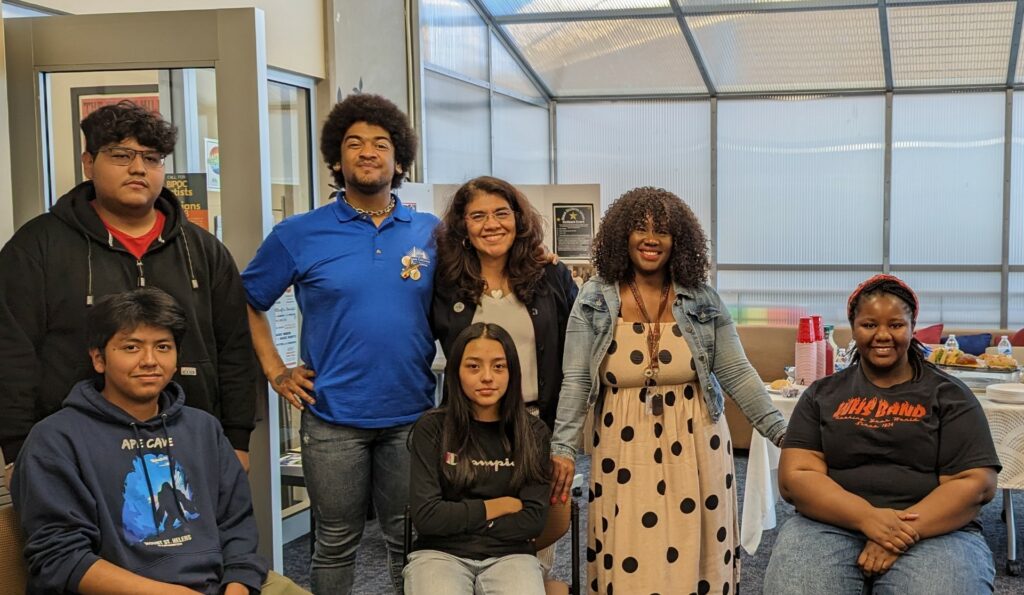Applauding Class of 2023
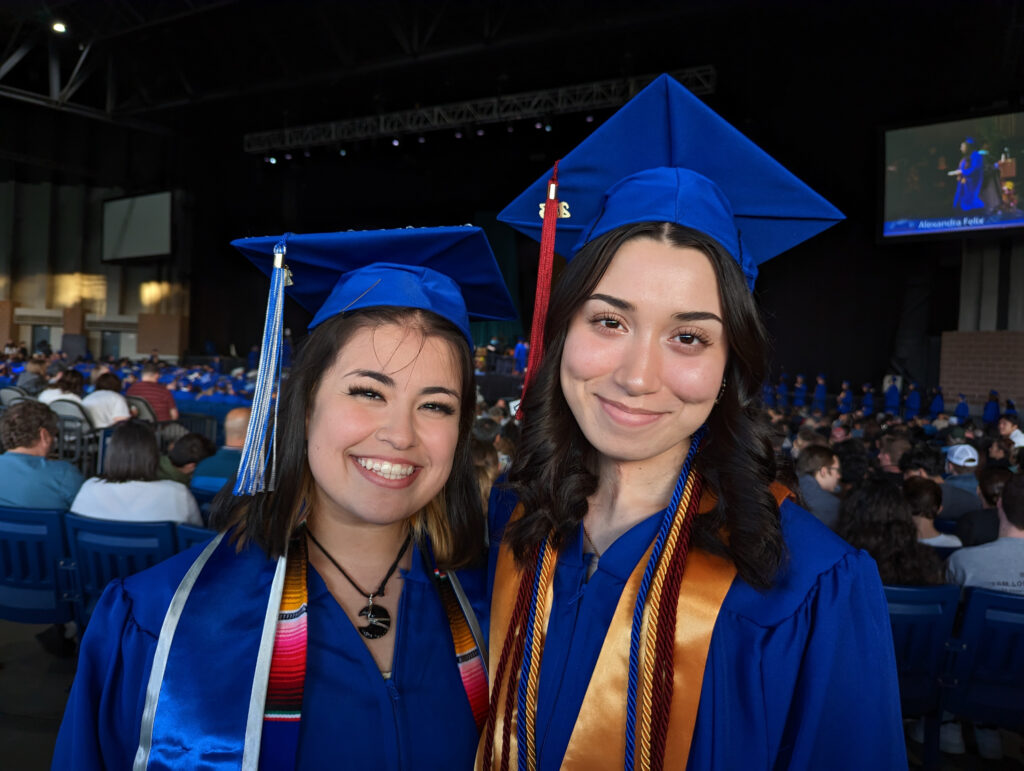
Clark College honored its 87th graduating class at the 2023 Clark College Commencement ceremony on June 15 at the RV Inn Style Resorts Amphitheater. The college conferred 1,833 degrees and certificates on 1,601 graduates, the next generation of our community’s workers, leaders, and scholars. More than 520 graduates and their guests gathered with college faculty and staff to celebrate their achievements.
- 1,601 graduates who earned 1,833 degrees and certificates
- 1,406 associate degrees
- 1,100 direct transfer associate degrees
- 81 bachelor of applied science degrees
- 257 certificates
- 89 high school diplomas
- 450 Running Start students who graduated
- 13 graduates from Larch Corrections Center; 12 students earned high school diploma or equivalent and 1 student earned the first Associate in Applied Science degree in Supervisory Management
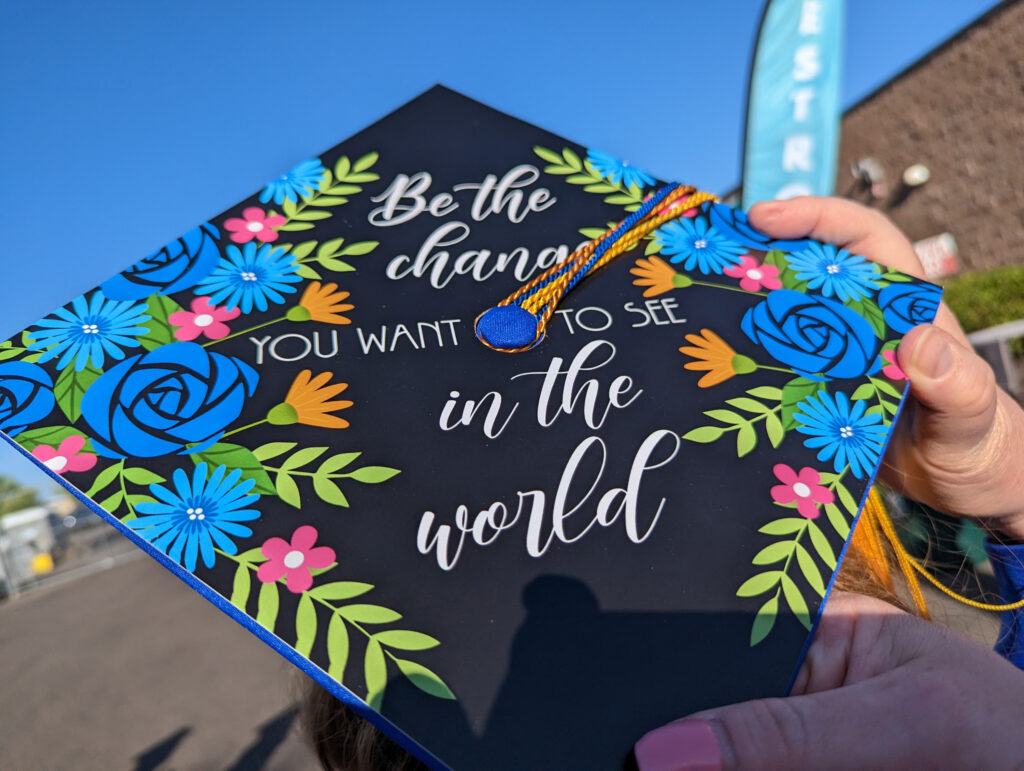
President Dr. Karin Edwards told the students, “We hope we have inspired you to excel and empowered you with the tools you need to transform your own life and others around you. Use the power of your degree to make the world a better place! As you move on to the next step of your life —and your next success — know that we are cheering you on to achieve the extraordinary!”
Trustee Cristhian Canseco Juarez followed with these words, “For those of you who also come from another culture, embrace your differences. Use your language skills and gifts to connect across cultures, to advocate for and uplift others, and to make your community a better, more equitable place.”
2023 Commencement Speakers:
- College President Dr. Karin Edwards
- Trustee Cristhian Canseco Juarez, who spoke in both English and Spanish
- Student speaker Darah Watts, Running Start student who earned her associate degree
- CCAHE Faculty Union President and Professor of Communication Studies Suzanne Southerland
- Interim Vice President of Instruction Dr. Jim Wilkins-Luton

“We are entering a new chapter in our lives; this new chapter leaves behind our doubts, fears, and uncertainties. Because we have succeeded. Clark College has allowed us to have this precious moment by giving us, not only the power, but the tools to earn it.”
Darah Watts, Student Speaker

Sitting in the upper section of the amphitheater, Ruby Lainez-Pintor held up a large sign in support of her sister who was graduating: “Congratulations, Berenice!”
After the last student had crossed the stage and the students had been conferred, the amphitheater crowd erupted with a cacophony of cowbells, kazoos, whoops, and clapping.
Student Success Stories
It was a commencement that highlighted students’ legacy, courage, and second chances.
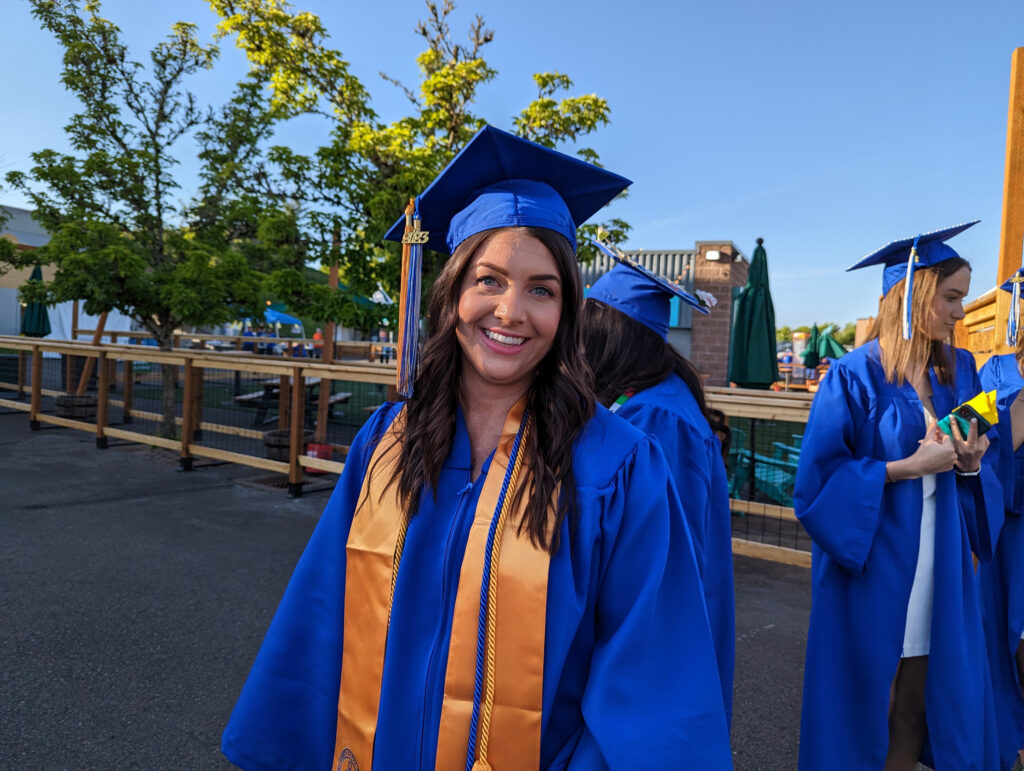
Ashley Freese, Biology
Ashley originally enrolled at Clark when she was 18, but shortly afterward became very sick with Hodgkins’ lymphoma and had to drop out of school. She returned to Clark in her 30s during the COVID pandemic. At commencement she crossed the stage and received an associate degree in biology. She is transferring to WSU Vancouver in the fall to earn a bachelor’s degree in environmental science.
Bradon Monahan, Welding
Bradon served his country as a Marine in Afghanistan, then Okinawa, then stateside. After a series of injuries, he was honorably discharged and faced surgeries and physical therapy. He enrolled in Clark’s Welding program because he likes working with his hands and welding helps him focus and calms his mind. Bradon earned his associate in applied technologies in Welding Technology. The day after commencement, Bradon, his wife, and their six children left for their next chapter in rural Oklahoma, where they bought a home. Although Bradon’s injuries prevent him from the rigors of fulltime welding, he plans to help local farmers by making welding repairs on their equipment.
Amelia Harris, Running Start
Amelia earned her associate degree while concurrently graduating from Fort Vancouver High School. She is a fourth-generation Clark College student. Her great grandmother, grandmother, grandfather, mother, and father all attended Clark. Amelia’s grandmother also worked for the college for 25 years. Amelia, who was captain of her high school’s bowling team, received a bowling scholarship to Elizabeth City State University in North Carolina, where she plans to major in business management and marketing.

Thavian McKinney, Surveying & Geomatics
On his last day of high school, Thavian severely fractured his leg, which required extensive surgery, and left him unable to walk for three months, followed by months of physical therapy. While he was recovering and could not stand for long, he enrolled in Clark’s Surveying & Geomatics program and completed his core classes online. But Thavian had to delay his first-year survey classes, which required lots of walking. He was given permission to complete two years of surveying courses during his second year. Before he graduated and earned an associate in applied science degree, he was hired as a lead survey technician at a design firm.
Student Awards
Community College Presidents’ Award: Sonia Talero-Pachon
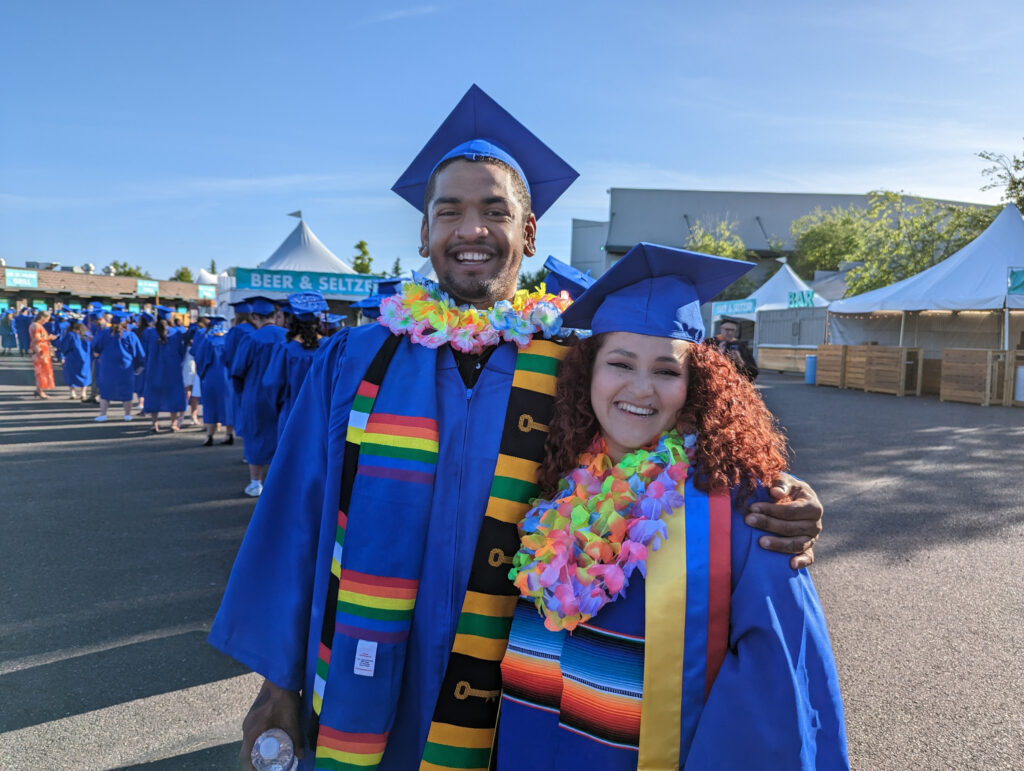
Sonia received the 2022-2023 Community College Presidents’ Award in honor of Val Ogden. This annual scholarship is given to a Clark College graduate who demonstrates leadership potential, a commitment to community service, and academic achievement and is transferring to WSU Vancouver.
Sonia exemplifies the resiliency and tenacity of first-generation college graduates. As a peer mentor in the Office of Diversity, Equity, and Inclusion, she worked with students in various cultural contexts, fostering connectivity, and embracing inclusivity. She believes in contributing to the community by cherishing her diversity, growing as an individual, and honoring her Colombian roots. Higher education is important to her because it opens the door to her dreams of owning and running a successful cultural events company to help systemically non-dominant communities demonstrate their artistic talent. She intends to become the first female in her family to graduate from a four-year university.
Thanks to the Clark College Foundation’s generosity, two other graduates were selected to receive a $1,000 scholarship each:
- Madelaine Debarber
- Alexandria ‘Lexi’ Kneipp
PTK All-Washington Academic Team Graduates
Phi Theta Kappa (PTK), the honors society for two-year colleges, chose the following graduates based on academic excellence and community service:
- Alexandria ‘Lexi’ Kneipp
- Ella Merusic
Faculty and Staff Awards
2023 Exceptional Faculty Award
- Dan Alberghetti, Network Technology
- Chef Earl Frederick, Cuisine Management
- Dr. Jacob Funk, Music
- Rebecca Herman, Dental Hygiene
- Dr. Julian Nelson, English
- Michiyo Okuhara, Japanese
2023 Lora Whitfield Social Equity Award (announced at Opening Day 2022)
- Christina Smith, English
- Cydney Topping, English
2023 Exceptional Classified Staff Award (announced at Opening Day 2022)
- Chris Layfield, Security and Safety
- Jessica Sanders, Transitional Studies
2023 Exceptional Administrative Exempt Award (announced at Opening Day 2022)
- Alyssa Voyles, Office of Diversity, Equity, and Inclusion
